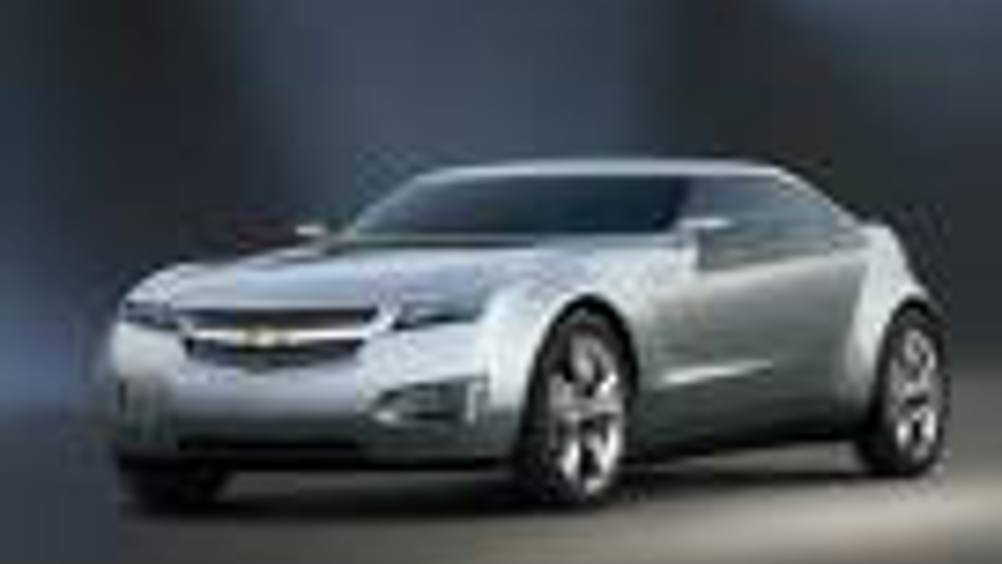GM plugs in to MIT battery
A company with roots at MIT has been selected to develop battery cells to power the Chevrolet Volt, a plug-in hybrid car.

A company with roots at MIT has been selected to develop battery cells to power the Chevrolet Volt, a plug-in hybrid car that General Motors hopes to begin selling in 2010.
The Detroit automaker has selected A123Systems of Watertown, Massachusetts to develop battery cells to meet the specific requirements of GM's E-Flex System - a technology that is expected to allow the Volt to travel around 40 miles on battery power alone.
A123Systems was co-founded in 2001 by Yet-Ming Chiang, the Kyocera Professor of Ceramics in MIT's Department of Materials Science and Engineering. Several of the company's key early employees also came from MIT.
A123 develops nanophosphate-based cell technology, which, according to company executives, provides higher power output, longer life and safer operations than other lithium ion battery chemistries.
The Volt concept car that GM unveiled in January at the Detroit Auto Show is equipped with both a petrol tank and a battery. For commuters who drive fewer than 40 miles a day, the Volt would effectively use no petrol and create zero emissions, saving an estimated 500 gallons of petrol a year. For drivers who put in around 60 miles a day on the road, the Volt would have a fuel efficiency of about 150 miles per gallon.
Register now to continue reading
Thanks for visiting The Engineer. You’ve now reached your monthly limit of news stories. Register for free to unlock unlimited access to all of our news coverage, as well as premium content including opinion, in-depth features and special reports.
Benefits of registering
-
In-depth insights and coverage of key emerging trends
-
Unrestricted access to special reports throughout the year
-
Daily technology news delivered straight to your inbox










Water Sector Talent Exodus Could Cripple The Sector
Well let´s do a little experiment. My last (10.4.25) half-yearly water/waste water bill from Severn Trent was £98.29. How much does not-for-profit Dŵr...